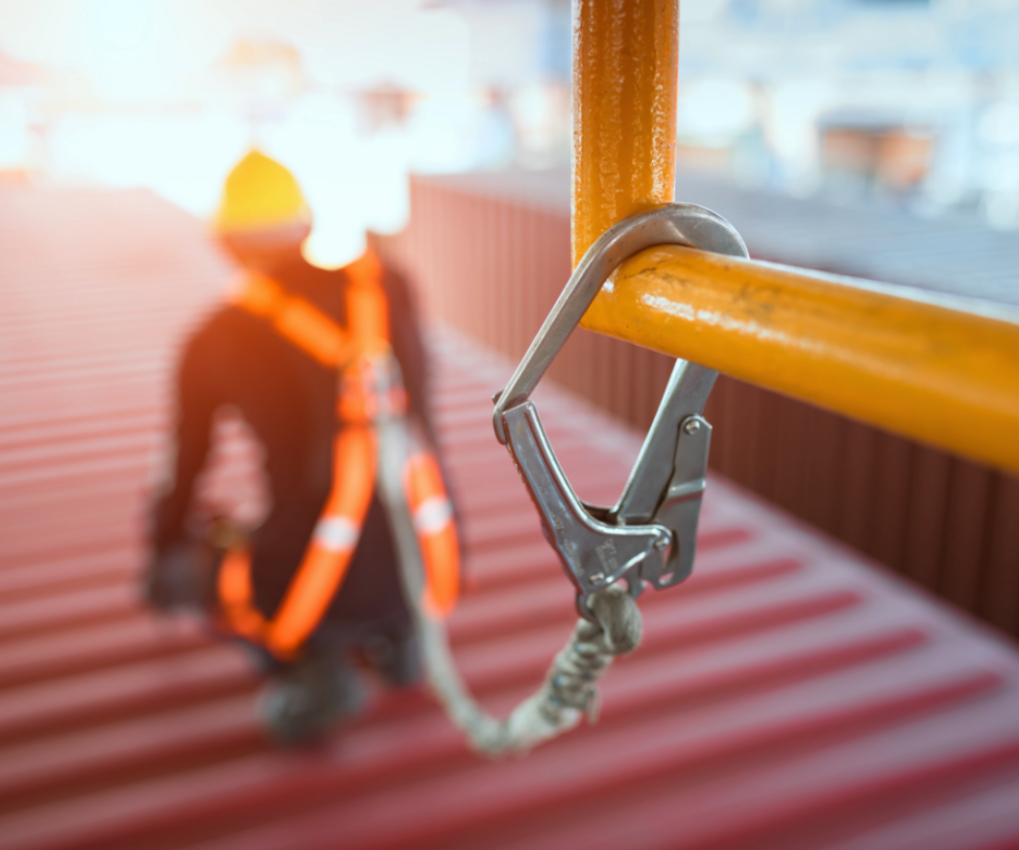
Your co-worker has just tripped and gone over the edge of the parapet on a roof 60’ in the air.
You heard the scream and saw the cable connecting him to the anchor snap tight with tension. Calling to him brings no response and a sinking feeling immediately sets into your gut. As you look over the edge, you see him hanging there, alive but unconscious. A crowd of your co-workers gather below, calling to him in concern while the foreman dials 9-1-1 while gazing upward.
The Fire Department’s only ladder truck that can reach the fallen victim is on another call and at least 15 minutes away, and then it hits you. Your company has implemented a Fall Prevention and Fall Restraint program, but has only done half the job. There’s no rescue equipment on-site and, no one on the crew has ever been trained on Fall Rescue. Your co-worker is alive and didn’t hit the ground but he is probably going to die before the end of the shift.
Why does it take something like this happening to bring us to reality?
One of the most common observations of fall protection consultants is that even the most proactive companies tend to overlook fall rescue, and I may be able to shed some light on why. In 25 years of construction management in the commercial and federal arena, I have never been asked by an owner’s rep or a contracting officer for a Fall Rescue Plan. Period.
It’s the same story.
No one thinks that it’s really going to happen to them, or their employees. No one. Not the employee. Not the Foreman. Not the Superintendent. Not the General Contractor. Not the Owner.
So, we check off the box by writing a Fall Prevention Plan and submitting it for approval.
We go out and purchase equipment: harnesses, yo-yos, anchors, etc. and train our employees on how to use them properly. We inventory them and constantly check them for compliance. We stress multiple times a day to have 100% tie-off and we pound it into our superintendents to keep the ever-watchful eye to verify that no workers forget. But now, your co-worker is hanging off the side of the building and you have no idea of what to do.
A Fall Prevention Plan must take into account that prevention doesn’t always work, or it would be called a Fall Elimination Plan.
To be effective, a Fall Prevention Plan must include a comprehensive Fall Rescue Plan. Additionally, an effective Fall Rescue Plan cannot be simply – Call 911, which should occur immediately. But the fact is that, due to the response time of Emergency Services and the speed at which orthostatic shock or “suspension trauma” can set in, relying on Emergency Services for fall rescue should probably be your second choice.
Fall rescue must be methodically planned out by taking into consideration every possible scenario.
An investment in time, equipment, training, and constant review must be made in order for effective fall rescue planning. At the start of each project, meetings with local Emergency Services will be welcomed by all and ensure that information concerning risks and capabilities of all parties are understood. Training and hands-on practice drills are absolutely essential for each team member to know how to react with confidence in their knowledge and capabilities. Finally, daily review among the team members of the equipment on-site, it’s location, important medical protocols for fall victims, and the responsibilities of everyone should a fall occur will ensure a quick and effective rescue.
About Gadzoom
Gadzoom enables you to generate important documents in minutes, giving you the freedom to run and manage your business without all the headaches that come with administrative responsibilities. Our company was born to make construction document management as streamlined as possible. Create a variety of government compliant safety and administrative documents at the touch of a button. If you’re interested in learning more, visit our site today.
